Exploring the Pros and Cons of Fixed-Rate vs Adjustable-Rate Mortgages
Fixed-Rate vs Adjustable-Rate Mortgages
Are you trying to decide between a Fixed-Rate vs Adjustable-Rate Mortgages? As a borrower, it’s important to understand the advantages and disadvantages of each type of loan before making a decision.
A fixed-rate mortgage offers stability and predictability, as the interest rate remains constant throughout the duration of the loan. This means that your monthly mortgage payments will remain the same, providing protection against sudden increases in interest rates. However, fixed-rate mortgages often have higher interest rates and less flexibility than adjustable-rate mortgages.
On the other hand, an adjustable-rate mortgage typically offers lower initial interest rates and more flexibility than fixed-rate mortgages. However, the interest rate can change over time, potentially leading to higher monthly mortgage payments.
Fixed-rate and adjustable-rate mortgages are two common types of mortgage loans available to borrowers. Both have their advantages and disadvantages, and understanding these differences can help borrowers make an informed decision about which type of loan is right for them. In this article, we will explore the pros and cons of fixed-rate vs adjustable-rate mortgages to help you make an informed decision.
What is a Fixed-Rate Mortgage?
A fixed-rate mortgage is a type of mortgage loan where the interest rate remains constant for the duration of the loan. This means that your monthly mortgage payment remains the same throughout the life of the loan. The main advantage of a fixed-rate mortgage is that it provides stability and predictability to borrowers, as they know exactly how much they will pay each month. Even if interest rates rise, your monthly payments will remain the same, providing you with protection from sudden and potentially significant increases in monthly mortgage payments.
Pros of Fixed-Rate Mortgages
There are several advantages to choosing a fixed-rate mortgage, including:
- Predictability: With a fixed-rate mortgage, you can predict exactly how much you will pay each month for the duration of the loan. This provides you with stability and predictability, which can be especially helpful if you are on a tight budget or have a fixed income.
- Protection from rising interest rates: If interest rates rise, your monthly mortgage payments will remain the same with a fixed-rate mortgage. This provides you with protection from sudden and potentially significant increases in monthly mortgage payments.
- Easier to understand: Fixed-rate mortgages are straightforward and easier to understand than adjustable-rate mortgages. This makes it easier for borrowers to make informed decisions about their mortgage loans.
Cons of Fixed-Rate Mortgages
There are also some disadvantages to choosing a fixed-rate mortgage, including:
- Higher interest rates: Fixed-rate mortgages typically have higher interest rates than adjustable-rate mortgages. This means that you may end up paying more interest over the life of the loan.
- Less flexibility: With a fixed-rate mortgage, you are locked into a specific interest rate for the duration of the loan. This means that you cannot take advantage of lower interest rates if they become available.
What is an Adjustable-Rate Mortgage?
An adjustable-rate mortgage (ARM) is a type of mortgage loan where the interest rate can change over time. The interest rate is usually fixed for an initial period, after which it becomes adjustable. This means that your monthly mortgage payments can go up or down over the life of the loan, depending on changes in interest rates [2].
Pros of Adjustable-Rate Mortgages
There are several advantages to choosing an adjustable-rate mortgage, including:
- Lower initial interest rates: Adjustable-rate mortgages typically have lower interest rates than fixed-rate mortgages. This means that your monthly mortgage payments will be lower during the initial period of the loan.
- Potential for lower interest rates: If interest rates go down, your monthly mortgage payments can go down as well. This provides you with the potential to save money on your monthly mortgage payments.
- More flexibility: Adjustable-rate mortgages provide more flexibility than fixed-rate mortgages. This means that you can take advantage of lower interest rates if they become available.
Cons of Adjustable-Rate Mortgages
There are also some disadvantages to choosing an adjustable-rate mortgage, including:
- Risk of rising interest rates: If interest rates rise, your monthly mortgage payments can go up as well. This means that you could end up paying more in monthly mortgage payments than you would with a fixed-rate mortgage.
- Complexity: Adjustable-rate mortgages are more complex than fixed-rate mortgages
Which Option is Best for You?
At the LeaderOne Financial Roller Mortgage Team, we understand that choosing the right mortgage can be overwhelming. That’s why our team of experienced professionals is here to help guide you through the decision-making process. We offer a range of mortgage products, including fixed-rate and adjustable-rate mortgages, to help you achieve your homeownership dreams.
Ultimately, the decision between a fixed-rate and adjustable-rate mortgage depends on your personal financial situation and preferences. By carefully weighing the pros and cons and consulting with our mortgage professionals, you can make an informed decision that meets your unique needs. Contact us today to learn more about our mortgage services and how we can help you achieve your homeownership dreams.



